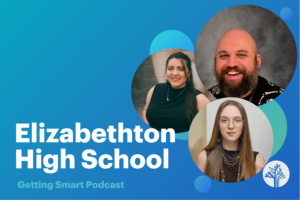Metacog: Management, Mode, Motivation, Mastery
There’s an interesting guest post on EdReformer this morning by Kaplan’s chief learning officer, Bror Saxberg. He suggests that we need to get smart fast about the neuro-psychology of learning. In that vein, it strikes me that we’ve been talking about ‘learning to learn’ since the SCANs report 20 years ago but haven’t learned all that much. Being a fan of alliteration, it strikes me that ‘learning how to learn’ is becoming aware of (metacognitive of):
* Management: self-regulation, study skills, goal setting–the basics skills of doing school (and life) that we assume children develop but we never teach (that’s why I’m a fan of Navigation 101, a 6-12 guidance curriculum adopted statewide in WA that teaches self-management).
* Motivation: developing an understanding of interests (ie, “I’d like to be an expert in…”), most productive learning environments (ie, collaborative v competitive, team v individual). The flood of keystroke data to come will allow us to datamine mastery patterns to uncover/form knowledge. (Inetoo.com has been trying to get smart about ‘mastery patterns’ as key to an intelligent learning platform.)
* Mode: an updated/broader view of learning styles closely related to motivation, students should develop a sense of “I learn best when…”. The emerging learning world allows students to choose from learning options including competitive games, simulations, virtual environments, and online dialogs. Increasingly they can modulate time/place/mode of learning–a ‘course’ is increasingly becoming a bundle of competencies that can be acquired through a series of synchronous/asynchronous, team/individual, physical/virtual, auditory/visual, classroom/applied, adaptive/sequential, competitive/collaborative learning tasks. With a world of options, it will become increasingly important that students gain an understanding of their most productive modes.
Bror suggests that research in this area will yield important innovations in ‘learning to learn’ in the decade to come–a family of smart apps for personalized and lifelong learning.








0 Comments
Leave a Comment
Your email address will not be published. All fields are required.